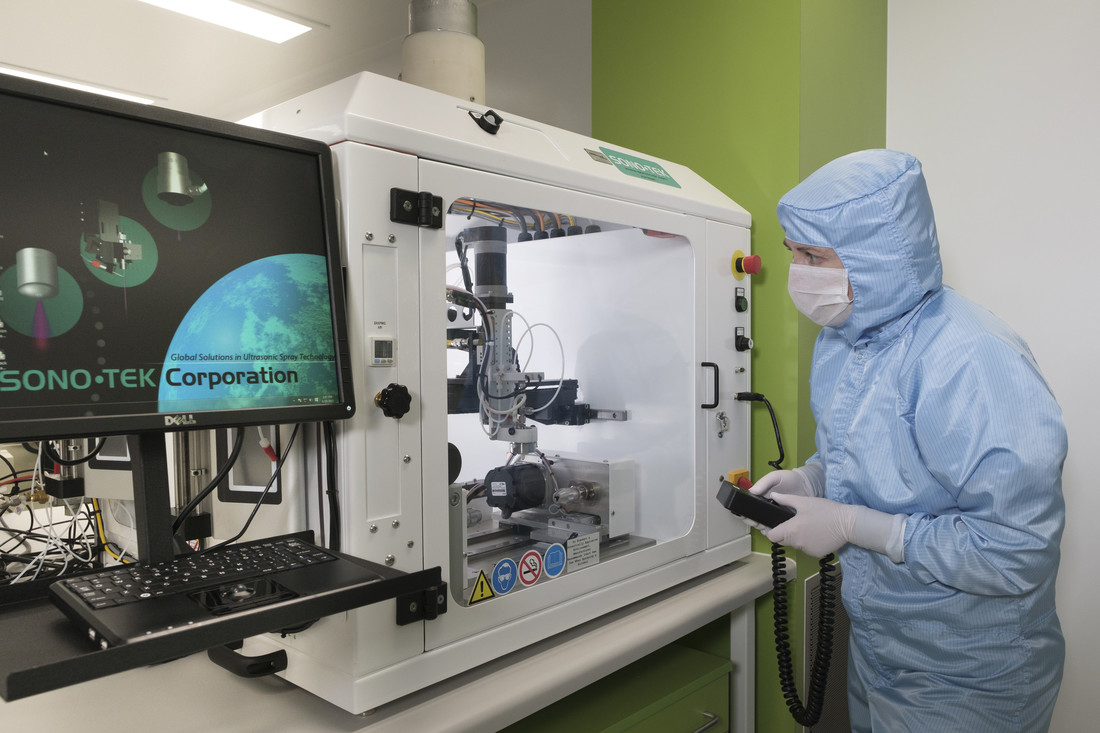Background
Q-Sera's RAPClot™ formulation coats blood collection tubes to produce quality serum from all samples, including anti-coagulated bloods
 Q-Sera is an Australian medical technology start-up. Utilising technology developed at the University of Queensland, Q-Sera looks to meet the industry need for a blood collection tube that rapidly produces high quality serum from all samples, including anti-coagulated bloods. Q-Sera's technology utilises IP protected formulations and pro-coagulant proteins called 'prothrombin activators', which are found in snake venom. These pro-coagulants overcome the challenge of current tubes in clotting blood from anticoagulated hospital patients, or those taking common blood thinning medicines. Blood collection tubes are coated with Q-Sera's, RAPClot™ which stabilise formulations, so that high quality serum can be produced for analysis.
Q-Sera is an Australian medical technology start-up. Utilising technology developed at the University of Queensland, Q-Sera looks to meet the industry need for a blood collection tube that rapidly produces high quality serum from all samples, including anti-coagulated bloods. Q-Sera's technology utilises IP protected formulations and pro-coagulant proteins called 'prothrombin activators', which are found in snake venom. These pro-coagulants overcome the challenge of current tubes in clotting blood from anticoagulated hospital patients, or those taking common blood thinning medicines. Blood collection tubes are coated with Q-Sera's, RAPClot™ which stabilise formulations, so that high quality serum can be produced for analysis.
Challenge
Producing commercial spraying and drying conditions with RAPClot™ formulations
Q-Sera wanted to establish base-line spraying and drying conditions for coating the inner surface of blood collection tubes with RAPClot™ formulations, as well as to validate their chromogenic bioactivity assay in another laboratory.
Q-Sera engaged CSIRO researchers within the Biomedical Materials Translational Facility (BMTF), led by Principal Research Scientist Dr Mark Bown. The team conducted trials under realistic production conditions for spray coating and then air dried the inner surfaces of blood collection tubes with RAPClot™ formulations. The spraying and drying techniques used at CSIRO are translatable to large-scale manufacturing and demonstrate the commercial potential of the RAPClot™ technology.
Solution
Optimised the RAPClot™ formulation and spray conditions using BMTF’s scale-up, prototyping, and testing capabilities
CSIRO was able to assist Q-Sera using the BMTF’s scale-up, prototyping, and testing capabilities. Researchers optimised the RAPClot™ formulation and spray conditions using standard commercially available blood collection tubes. Additionally, a vacuum packaging and gamma sterilisation method for coated tubes were developed and provided to Q-Sera, along with samples of prothrombin-coated collection tubes produced for clinical trials.
Positive research results were achieved with spraying, drying and irradiation trials, producing tubes that met the expected standards. Tube drying facilities were developed, with protocols matching industry expectations.
The data generated and understanding of the ultrasonic spray equipment will be very beneficial in producing information packages for potential partners for the RAPClot technology
Q-Sera’s CEO, Michael Grant
The serum produced through Q-Sera’s blood collection tubes has the potential to improve biochemical analysis and the efficiency of laboratories. This could also lead to improved patient diagnostics and subsequent treatment outcomes.
The project was supported by a CSIRO Kick-Start voucher, facilitated by SME Connect.
Find out more and apply
- Program Eligibility and Guidelines
- Program Eligibility and Guidelines - text version
- Expressions of Interest form
For more information and to apply, please get in touch with our CSIRO Kick-Start Program team:
Background
Q-Sera's RAPClot™ formulation coats blood collection tubes to produce quality serum from all samples, including anti-coagulated bloods
Q-Sera is an Australian medical technology start-up. Utilising technology developed at the University of Queensland, Q-Sera looks to meet the industry need for a blood collection tube that rapidly produces high quality serum from all samples, including anti-coagulated bloods. Q-Sera's technology utilises IP protected formulations and pro-coagulant proteins called 'prothrombin activators', which are found in snake venom. These pro-coagulants overcome the challenge of current tubes in clotting blood from anticoagulated hospital patients, or those taking common blood thinning medicines. Blood collection tubes are coated with Q-Sera's, RAPClot™ which stabilise formulations, so that high quality serum can be produced for analysis.
Challenge
Producing commercial spraying and drying conditions with RAPClot™ formulations
Q-Sera wanted to establish base-line spraying and drying conditions for coating the inner surface of blood collection tubes with RAPClot™ formulations, as well as to validate their chromogenic bioactivity assay in another laboratory.
Q-Sera engaged CSIRO researchers within the Biomedical Materials Translational Facility (BMTF), led by Principal Research Scientist Dr Mark Bown. The team conducted trials under realistic production conditions for spray coating and then air dried the inner surfaces of blood collection tubes with RAPClot™ formulations. The spraying and drying techniques used at CSIRO are translatable to large-scale manufacturing and demonstrate the commercial potential of the RAPClot™ technology.
Solution
Optimised the RAPClot™ formulation and spray conditions using BMTF’s scale-up, prototyping, and testing capabilities
CSIRO was able to assist Q-Sera using the BMTF’s scale-up, prototyping, and testing capabilities. Researchers optimised the RAPClot™ formulation and spray conditions using standard commercially available blood collection tubes. Additionally, a vacuum packaging and gamma sterilisation method for coated tubes were developed and provided to Q-Sera, along with samples of prothrombin-coated collection tubes produced for clinical trials.
Positive research results were achieved with spraying, drying and irradiation trials, producing tubes that met the expected standards. Tube drying facilities were developed, with protocols matching industry expectations.
The data generated and understanding of the ultrasonic spray equipment will be very beneficial in producing information packages for potential partners for the RAPClot technology
Q-Sera’s CEO, Michael Grant
The serum produced through Q-Sera’s blood collection tubes has the potential to improve biochemical analysis and the efficiency of laboratories. This could also lead to improved patient diagnostics and subsequent treatment outcomes.
The project was supported by a CSIRO Kick-Start voucher, facilitated by SME Connect.
Find out more and apply
- Program Eligibility and Guidelines PDF (170 KB)
- Program Eligibility and Guidelines - text version TXT (11 KB)
- Expressions of Interest form
For more information and to apply, please get in touch with our CSIRO Kick-Start Program team:
